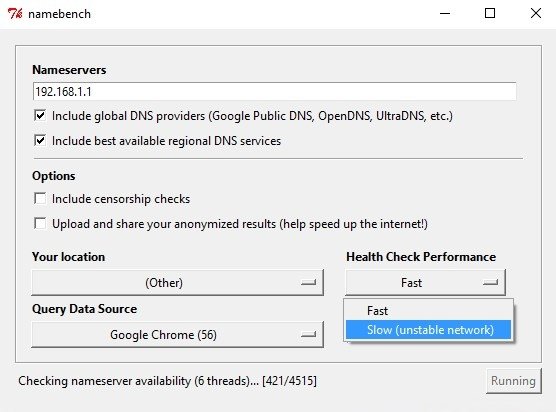

On the right, Namebench recommends the optimum nameserver setup for my machine. That’s to be expected though… it’s a local server so some cached queries must have been involved. 🙂Īfter the test completes, your web browser starts up to show you the results.Īs you can see, my primary DNS server’s performance is pretty sweet. The test takes 10 – 20 minutes so you can take a sandwich break or something. Google has a more detailed explanation of the settings here. You can add other nameservers to this list (separate them with a comma or space.) The default settings are usually okay for most people so just click Start Benchmark. The Nameservers are the DNS servers you are currently using. Launch Namebench (Internet –> namebench for Ubuntu users.) You’ll see an interface like this: We don’t want those applications competing with Namebench for your bandwidth and distorting the results. You can add their repository here.Ĭlose all internet-aware applications before you start Namebench.

The people at GetDeb have packaged a deb for Namebench.
#HOW LONG DOES NAMEBENCH TAKE CODE#
It uses either your web browser’s history or a standardized test data set to find out which DNS service returns the fastest results for your location.ĭownload and run Namebench from the Google Code repository here.
#HOW LONG DOES NAMEBENCH TAKE MAC OS#
Namebench is a DNS benchmarking application available for the Linux, Windows and Mac OS X. Most Internet Service Providers provide a DNS server for their customers to help speed up browsing and downloads. Your browser typically hands over website names to a DNS server and receives IP Addresses in return. The Domain Name System (DNS) resolves domain names like into a series of digits ( 74.200.247.60) that computers can understand.


 0 kommentar(er)
0 kommentar(er)
